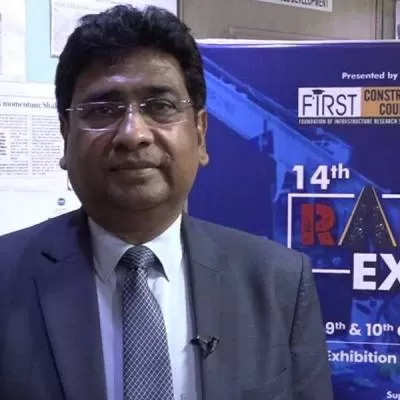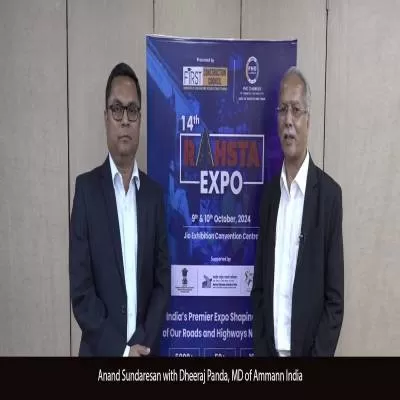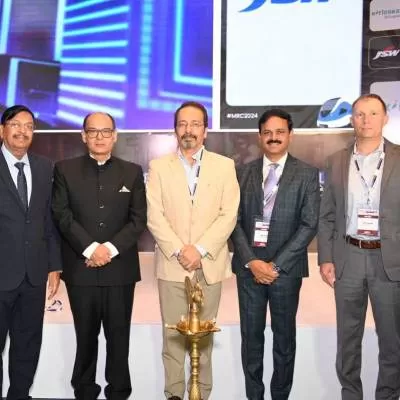- Home
- Infrastructure Energy
- POWER & RENEWABLE ENERGY
- Power to regulate
Power to regulate
The World Economic Forum's Global Competitiveness Report 2013-2014 ranks India at the 85th position out of 148 countries in overall quality of infrastructure and has reiterated in many of its earlier reports that infrastructure has been the single biggest hindrance to do business and accelerate growth in India.
Although Indian public utility services have come a long way in the past decade, the Planning Commission in its Twelfth Five-Year Plan (2012-2017) has stated that public utility services still require trillions of dollars in investment in coming years, compelling the Government to initiate policy and regulatory reforms for an investor-friendly environment.
The present multiple regulatory authorities such as Telecom Regulatory Authority of India, Tariff Authority for Major Ports, Airports Authority of India, etc, have lacked functional and financial independence. Many more regulators proposed such as the Real-Estate Regulator, Coal Regulator and Roads Regulator lack clarity on their role and accountability. Hence, the Planning Commission unveiled the Draft Regulatory Reform Bill, 2013, based on the existing UK and US models, which have a proven track record of successfully attracting private investment into public utility sectors. Approved on December 13, 2013, the bill aims at a uniform regulatory policy for governing the regulatory commissions as autonomous, accountable bodies for development and promotion of public utility industries.
Synopsis of the Bill
The Bill identifies 13 public utility sectors: electricity, telecommunications and internet, broadcasting and cable TV, posts, airports, ports, railways, mass rapid transit system, highways, oil and gas, coal, water supply, and sanitation and waterways.
An autonomous Regulatory Commission (Commission), Appellate Tribunal and a Tariff Regulatory Commission have been proposed for regulating the aforementioned sectors. Members of a Commission will be a blend of qualified and experienced persons from backgrounds such as finance, experience in the relevant industry, law, public administration or management. In order to make a Commission accountable, yearly reports to the Parliament would be submitted.
The Commission shall enjoy extensive powers, namely issuing of licences, enforcing of rules, regulations, licences and other instruments issued under the applicable laws; amending the terms and conditions of the licences; determining and regulating tariffs; enforcing standards with respect to quality and reliability of services provided by licensees; collecting, analysing and publishing data and reports concerning the relevant public utility industry to the public; seeking statistics or reports from the licensees; and aiding and advising the government on amending any legislations or rules on public utility industry from time to time. This includes the power to enter and acquire property; entering into contracts as needed; acquiring such rights or privileges/licence/authorities; levying and collecting fees; and many other powers for performing and discharging their duties under this legislation.
The current system of licensing, which is in the hands of ministries, is thus transferred to an independent regulator as an issuing authority. A 120-day time limit is also prescribed for the issue of a licence with an opportunity to the people to object to the appointment of a prospective licensee.
A National Advisory Committee (NAC) to represent and protect the interests of consumers and advise the commission on major policy issues is also included. Further, any dispute between a licensee and a commission shall be resolved by conciliation and arbitration with an appeal to the appellate tribunal. Last, the Bill also proposes that a licensee will have to act within the ambit of competition laws.
In conclusion
The Regulatory Reform Bill, 2013 is definitely the right step towards an independent regulatory body as against dealing with ministerial bureaucracy. However, challenges such as the overlap of powers, for example, between the Commissions and Competition Commission, remain. The Bill also needs to clearly address issues such as overlapping with present and non-existing sector regulators by either insisting on mandatory consultation among the regulators or establish a panel or committee to deal with such issues.
A carefully streamlined legal framework would secure a stable foundation for attracting investment into public utility services, thereby boosting the Indian economy. It remains to be seen if the Bill is actually effective to that extent and lives up to its promises.
About the Authors: With 18 years of experience, Rupali Sharma (Left) is a Senior Partner with Kochhar & Co, Mumbai.
Neelima Potireddy (Right) is an Associate with Kochhar & Co, Mumbai.
The Government approves the Draft Regulatory Reform Bill, 2013, to govern the constitution, powers, functioning and accountability of the regulatory commissions for development and promotion of public utility industries, say RUPALI SHARMA and NEELIMA POTIREDDY. The World Economic Forum's Global Competitiveness Report 2013-2014 ranks India at the 85th position out of 148 countries in overall quality of infrastructure and has reiterated in many of its earlier reports that infrastructure has been the single biggest hindrance to do business and accelerate growth in India. Although Indian public utility services have come a long way in the past decade, the Planning Commission in its Twelfth Five-Year Plan (2012-2017) has stated that public utility services still require trillions of dollars in investment in coming years, compelling the Government to initiate policy and regulatory reforms for an investor-friendly environment. The present multiple regulatory authorities such as Telecom Regulatory Authority of India, Tariff Authority for Major Ports, Airports Authority of India, etc, have lacked functional and financial independence. Many more regulators proposed such as the Real-Estate Regulator, Coal Regulator and Roads Regulator lack clarity on their role and accountability. Hence, the Planning Commission unveiled the Draft Regulatory Reform Bill, 2013, based on the existing UK and US models, which have a proven track record of successfully attracting private investment into public utility sectors. Approved on December 13, 2013, the bill aims at a uniform regulatory policy for governing the regulatory commissions as autonomous, accountable bodies for development and promotion of public utility industries. Synopsis of the Bill The Bill identifies 13 public utility sectors: electricity, telecommunications and internet, broadcasting and cable TV, posts, airports, ports, railways, mass rapid transit system, highways, oil and gas, coal, water supply, and sanitation and waterways. An autonomous Regulatory Commission (Commission), Appellate Tribunal and a Tariff Regulatory Commission have been proposed for regulating the aforementioned sectors. Members of a Commission will be a blend of qualified and experienced persons from backgrounds such as finance, experience in the relevant industry, law, public administration or management. In order to make a Commission accountable, yearly reports to the Parliament would be submitted. The Commission shall enjoy extensive powers, namely issuing of licences, enforcing of rules, regulations, licences and other instruments issued under the applicable laws; amending the terms and conditions of the licences; determining and regulating tariffs; enforcing standards with respect to quality and reliability of services provided by licensees; collecting, analysing and publishing data and reports concerning the relevant public utility industry to the public; seeking statistics or reports from the licensees; and aiding and advising the government on amending any legislations or rules on public utility industry from time to time. This includes the power to enter and acquire property; entering into contracts as needed; acquiring such rights or privileges/licence/authorities; levying and collecting fees; and many other powers for performing and discharging their duties under this legislation. The current system of licensing, which is in the hands of ministries, is thus transferred to an independent regulator as an issuing authority. A 120-day time limit is also prescribed for the issue of a licence with an opportunity to the people to object to the appointment of a prospective licensee. A National Advisory Committee (NAC) to represent and protect the interests of consumers and advise the commission on major policy issues is also included. Further, any dispute between a licensee and a commission shall be resolved by conciliation and arbitration with an appeal to the appellate tribunal. Last, the Bill also proposes that a licensee will have to act within the ambit of competition laws. In conclusion The Regulatory Reform Bill, 2013 is definitely the right step towards an independent regulatory body as against dealing with ministerial bureaucracy. However, challenges such as the overlap of powers, for example, between the Commissions and Competition Commission, remain. The Bill also needs to clearly address issues such as overlapping with present and non-existing sector regulators by either insisting on mandatory consultation among the regulators or establish a panel or committee to deal with such issues. A carefully streamlined legal framework would secure a stable foundation for attracting investment into public utility services, thereby boosting the Indian economy. It remains to be seen if the Bill is actually effective to that extent and lives up to its promises. About the Authors: With 18 years of experience, Rupali Sharma (Left) is a Senior Partner with Kochhar & Co, Mumbai. Neelima Potireddy (Right) is an Associate with Kochhar & Co, Mumbai.
























